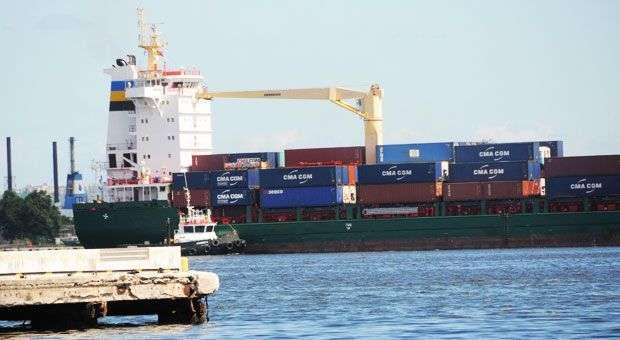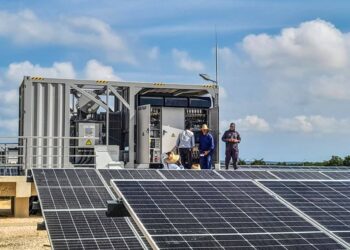This Saturday should mark a “before and after” for foreign capital in Cuba. Since mid- 2012 a new foreign investment policy was announced, and the process created more expectations than certainties until a few months ago. Then finally it was learned that in March the law would be discussed by the National Assembly of the People’s Power in extraordinary session and then voted upon.
When some clauses of the Draft are already known, it is to be expected the Parliament in plenary session will not make significant changes, as they it was previously discussed in all provinces, with the participation of 565 of the total of 612 deputies. During this process the text of the draft was the subject of corrections and contributions, José Luis Toledo, chairman of the Committee on Constitutional and Legal Affairs of the Assembly, told reporters.
One of the main changes of this policy has to do with the concept of foreign investment as a “supplement” to the country’s economic activity, as understood so far. While this idea is not discarded, foreign capital is recognized as a fundamental in certain sectors.
After almost 20 years of applying Law 77, it is remarkable the tendency to favor large investment projects above the small and medium enterprises. That weakness is largely settled by allowing the union of cooperatives as legal entities, with partners in other countries. However, this possibility leaves out the self-employed, a dynamic and growing sector.
It is not known whether particular business may establish contracts for the sale or provision of services with mixed or wholly foreign entities. Once there is a wholesale market and reduce the high levels of tax evasion, two major obstacles to private entrepreneurship – they could assess resolutions and regulations that could loosen up operations in this regard.
It is significant the emphasis on attracting advanced technologies; not only “hard” assets, but also managerial methods. It is important to note this element turns the gaze to the industry, undercapitalized and largely obsolete, since it is a matter of changing the technological structure, synonymous of modernization and development.
Deborah Rivas, Director General of Investment at the Ministry of Trade and Foreign Investment (MINCEX) , noted the importance of having a solid and structured portfolio of projects. Here it will be of paramount importance the relationship MINCEX can establish, as the governing body, with the authorities of agriculture, energy and mining, tourism, industry, local authorities, and other entities that will contribute with their proposals to that portfolio.
The structural impact of the new legislation will come up to related institutions such as trade register and the Cuban Court of International Arbitration, and especially the Chamber of Commerce and the Center for Promotion of Foreign Trade and Foreign Investment of Cuba (CEPEC). Each will have to optimize their work and play a more aggressive role in organizing trade missions and trade shows, business forums and other ways to connect to the national and established in the country businesses with partners overseas.
Something similar should happen in intellectual property, as they will be more exposed to innovation, patents and scientific- technical progress in general, while foreign investment is a catalyst for them, all of which is called to be protected and regulated. Similarly we must unlock certain mechanisms in Customs and logistics chains of distribution and marketing.
Cuban migration may also invest, on an equal basis to other potential partners, Rivas said. While the new law states that ” foreign investment in the country are protected against third party claims comply with the law or the extraterritorial application of laws of other states , according to Cuban law and as specified by Cuban courts ” it is expected that residents in America will have a more difficult time to successfully carry operations in the Island
And here comes along the obstacle of the US blockade and the country’s indebting rate, liquidity constraints, lack of infrastructure and building capacity, the uncertainty that can generate the process of monetary unification. There is also the challenge of fostering a climate of transparency, legal and fiscal reliability, and compliance with commitments.
“It’s not about being or not within the law, but for this not to become a dead letter. I think it’s a matter of real will to make what is written, “The business attaché of a European embassy said. The boundaries for what can or cannot be done seems to be in the Supplementary Regulations, that later will become a Law, which seeks to specify the generalities in the text of the legislation.
“Here you can invest in everything, because I think everything has to be improved, there is a vast field,” a businessman with years of experience in Cuba says.
This variety of options is potentially attractive for many, as well as the prospects for updating the economic model of the country. Then it reappears as an advantage the strategic “Key to the Gulf” location. The Special Area Development Mariel confirms and demonstrates it.
Not it is just a matter of what lawmakers determine, who are meeting only to discuss and adopt the new Law. The National Assembly will meet, as usual, in regular session in June or July; however, it was convened ahead of schedule to make this decision. The few months apart suggest that there is no time to lose.
Photo: Roberto Ruiz










